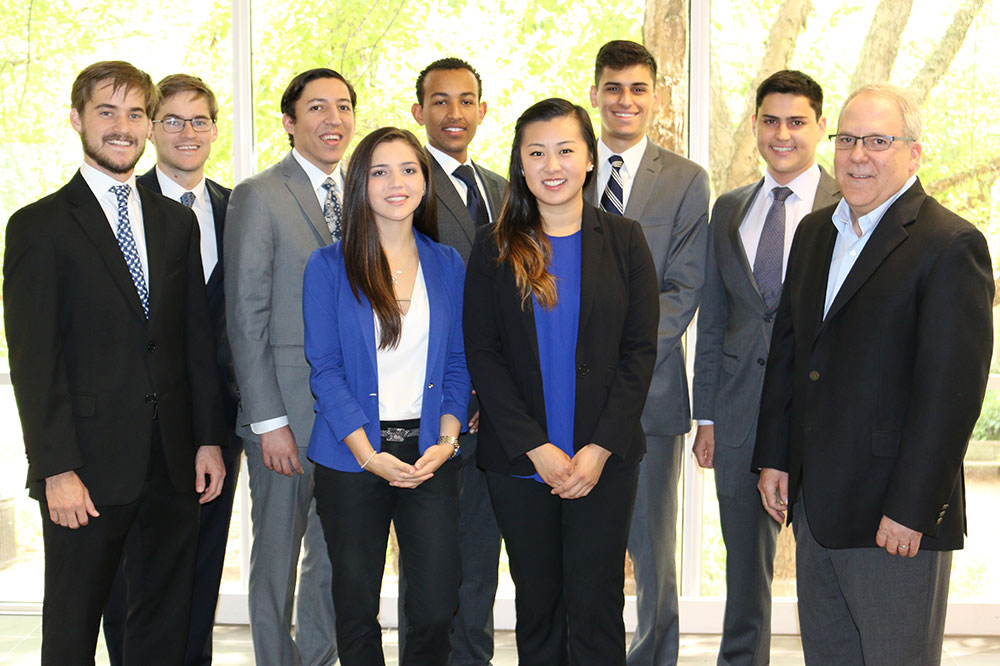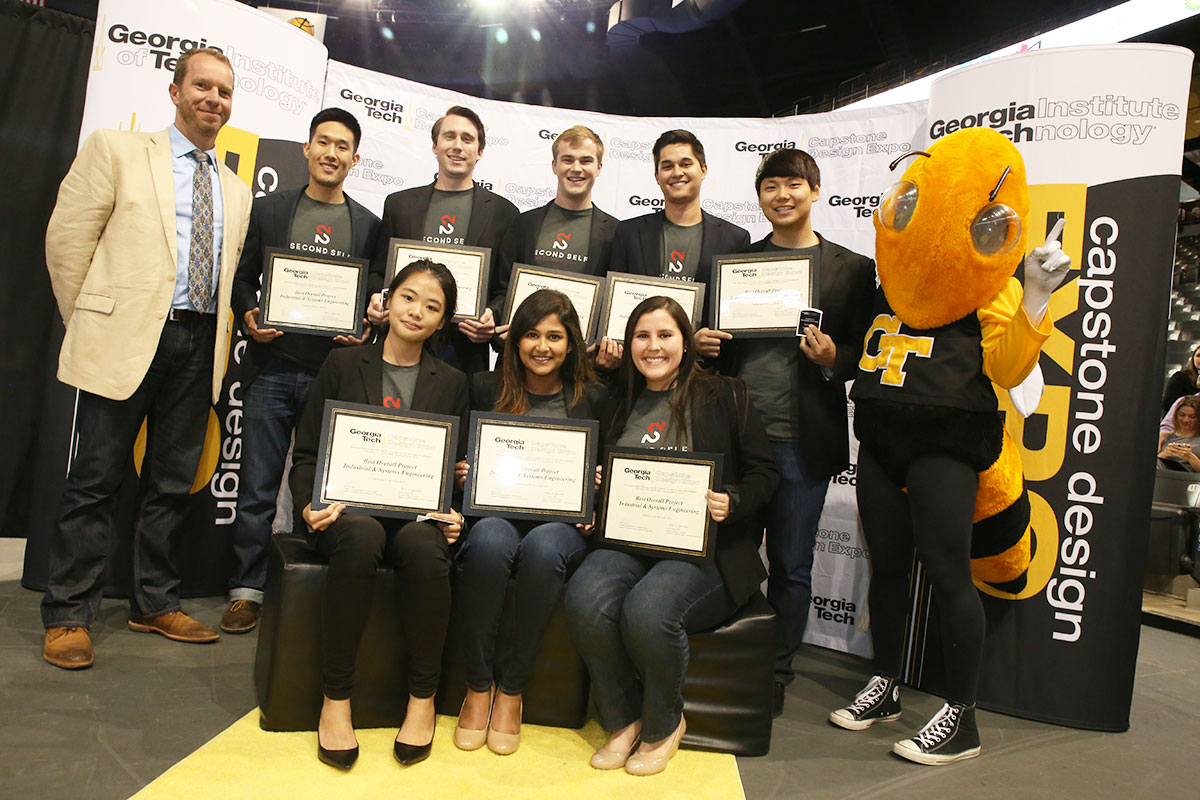Twenty-eight Senior Design teams from the Stewart School of Industrial & Systems Engineering (ISyE) completed real-world Capstone projects for the spring 2016 semester. Altogether, this group of Senior Design teams demonstrated the potential for more than $30 million per year in savings or increased profits.
“ISyE has a very large impact on society, both locally and around the world, through our Senior Design program,” said Leon McGinnis, Senior Design coordinator. “We can be very proud of our students.”
The 28 teams presented their projects at the spring 2016 Capstone Expo on April 26, 2016. Out of this group, three teams — Interface Prod, reFUEL, and UPS Air Opt —were chosen as finalists to compete in the Best of Senior Design on May 4. Team Interface Prod was selected as the first-place winner.
The Interface Prod team developed a sales and operations planning system for Interface, Inc., the world's largest modular carpet tile manufacturer. The software-based system takes in sales history for demand forecasting and production planning. With customizable inputs, the system generates potential production scenarios to run through a simulator of the entire production process. The simulator outputs production time and cost information on a station-level for each production run. This allows Interface to analyze results, compare trade-offs, and make continuous improvements. With the team’s recommendations, the system predicts production savings of $2.2 million for the first quarter of 2016.
Interface plans to implement the project by the end of the third quarter in 2016. It will build the foundation of a sales and operations planning team, which Interface did not have prior to the Senior Design project.
“The Interface team is proud to have worked with the Georgia Tech ISyE Senior Design team. Their work to develop a sales & operations planning system gives us the ability to quickly evaluate various production and inventory strategies given a certain demand scenario. This system gives us the scenario-planning tool we need to continuously adapt our strategy to changes in the marketplace,”
said Chris Turk, senior vice president for manufacturing and operations at Interface.
Team members included Yaodong Jia, Lisa Liu, Alexandria Schmid, Antong Su, Kattelie Thys, Ziyu (Tino) Zhang, and Jingyu Zhu. They were advised by Professor Alexander Shapiro.
Team reFUEL developed a random forest classification model using machine learning to detect and prevent fraud for FLEETCOR. The company is a leading independent global provider of specialized payment products and services including fleet cards, food cards, corporate lodging discount cards, and other specialized payment services for businesses throughout the world. FLEETCOR, which is liable for all fraudulent transactions on their cards, can use this model to save upwards of $5 million in fraud payouts each year.
Team members included Saharsh Chordia, Andree Curran, Matthew Faenza, Mary Elizabeth Herndon, Kyung Kim, Haeun Park, Julia Wayne, and Haidan Zhou. They were advised by David M. McKenney Family Assistant Professor Sebastian Pokutta.
Team UPS Air Opt has enabled UPS International Air Freight to take full advantage of package consolidation for international shipments by redesigning their routing decision process. This was accomplished through the development of an optimization-based tool that effectively combines dense and volumetric cargo on flights.
For 15 percent of the system, UPS will see an immediate estimated annual savings of $3.5 million by using the suggested guidelines. Going forward, the team proposed an alternative routing paradigm that could see an annual savings of $5.9 million.
UPS has already begun to implement the project by using the optimization tool in the UPS International Air Freight business unit. After the tool has been fully vetted using sample data, the optimization tool will be implemented as a stable analytical tool that complements the business unit’s existing toolkit of evaluation software/methods, according to Jack McPherson of UPS Corporate Transportation.
Team members include Abubaker Abubaker, James Alcock, Peter Alcock, Cristian Barron, Emily Dong, Nicole Gottret Murillo, Eduardo Prieto, and Sebastian Salazar. They were advised by Virginia C. and Joseph C. Mello Chair and Professor Paul Griffin.
During the 2016 Capstone Expo, a panel of alumni judges chose Senior Design team Second Self as the ISyE winner. This team worked with local microbrewery Second Self (founded by two Georgia Tech alumni) to implement a project that will enable the brewery's scalable growth, from a local to a regional brewery.
Second Self team members include John Cho, Brian Homans, Yikyung Kim, Gloria Lozano, John Na, Charles Oliva, Sue Pedapudi, and Matthew Zerkus. They were advised by Coca-Cola Material Handling & Distribution Chair and Professor Benoit Montreuil.
For More Information Contact
Shelley Wunder-Smith
Stewart School of Industrial & Systems Engineering
404.385.4745

